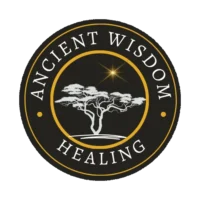Serving Others

As souls on this earthly journey, we choose one of two paths for our life. In a previous post-Integrating Societal Duality Part 1 & 2, I explain why we have and need both paths for this world. We can be Service-to-Self oriented where more than 95% of our life is devoted to seeking our own way in all things. The required high percentage is due to the difficulty in sustaining the negative path. We must constantly bend others to our will. If we help another it is to further our own means. Our intention is personal gain without thought of how our actions affect the other person.
If we are on the Service-to-Others path, then for more than 51% of the time, our intention is to do good in the world without it necessarily giving anything back to us. We take care of our own needs but are aware of others and what they are going through as well. We seek win/win scenarios. This polarity is easier to maintain due to the natural positive proclivities of Creator/God/Source/Universal Love.
In our zeal to help other people with their problems and issues, we may over look the fact that we live on a Free-Will planet. Not everyone wants our help or needs any assistance. These people may be learning a new skill, desire independence, or are aware of other circumstances that you are not privy to where your help may interfere. Some people desire to have everything done for them without any responsibility for their own lives. These people will take advantage of a person willing to help but when things go wrong, will blame the helper for the negative outcome.
If we are to fulfill our mission and passion in serving others, we must have the required amount of fuel to do the job. Our emotional and physical bucket must have enough for taking care of ourselves before we care for others in need. In an airline passenger safety training, it is always instructed that we must put on our air-mask before helping anyone else- this includes babies, children and infirm adults. Imagine placing this life-preserving assistance on your child first only for you to succumb to ill-health or death, leaving the child without you for further care. In caring for ourselves, we are more fully able to be there for the others in our life when a crisis happens down the road.
How do we know when to assist? Our first priority is to ask the person (or group) you desire to help- “Is there some way I can help you?” If they say yes, “Do you know what kind of help you desire/need?” If they do know, do what they ask in the manner they prescribe. If you know a way that may work for a better outcome, offer the suggestion, allowing them to say no to your idea without taking it personally. If they do not know what will help, give them your idea of assistance so they can agree or not to take you up on your offer. If they say they do not want help, allow their wishes to stand. You may let them know they can change their mind and ask for your help later.
Relationships take time and attention to become what they are intended to be. We do not always have the best examples from childhood to follow. Sometimes, we must learn healthier ways of conducting our behavior in order to get along with folks. In filling our emotional and physical tank we are respecting ourselves and teaching others through our actions how to accomplish self-care as well. By asking permission of others before we attempt to assist, we are respecting that person. In allowing their yes or no decision to stand, we build trust.
Fill your fuel bucket first and give yourself the love you are desiring from others
When you want to help another:
Ask if they want/need your help
Accept their answer- Yes/No/Maybe Later
Do as they ask when if they say yes
Offer an alternative (if you have another idea) but accept their decision if they decline
Love yourself all the way through this process
Artwork- Washerwomen 1768 ~ François Boucher
The Metropolitan Museum of Art – Open Access

